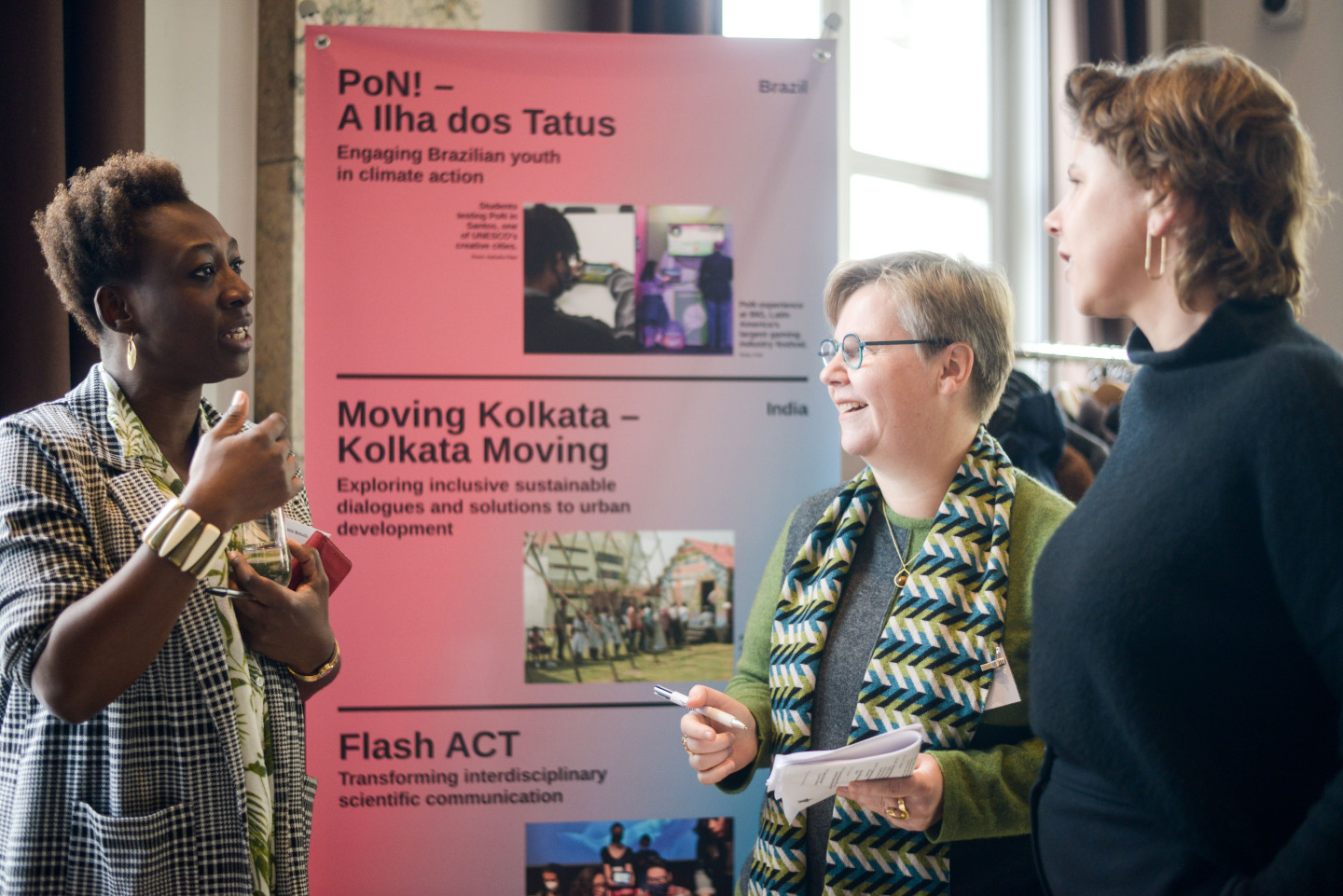
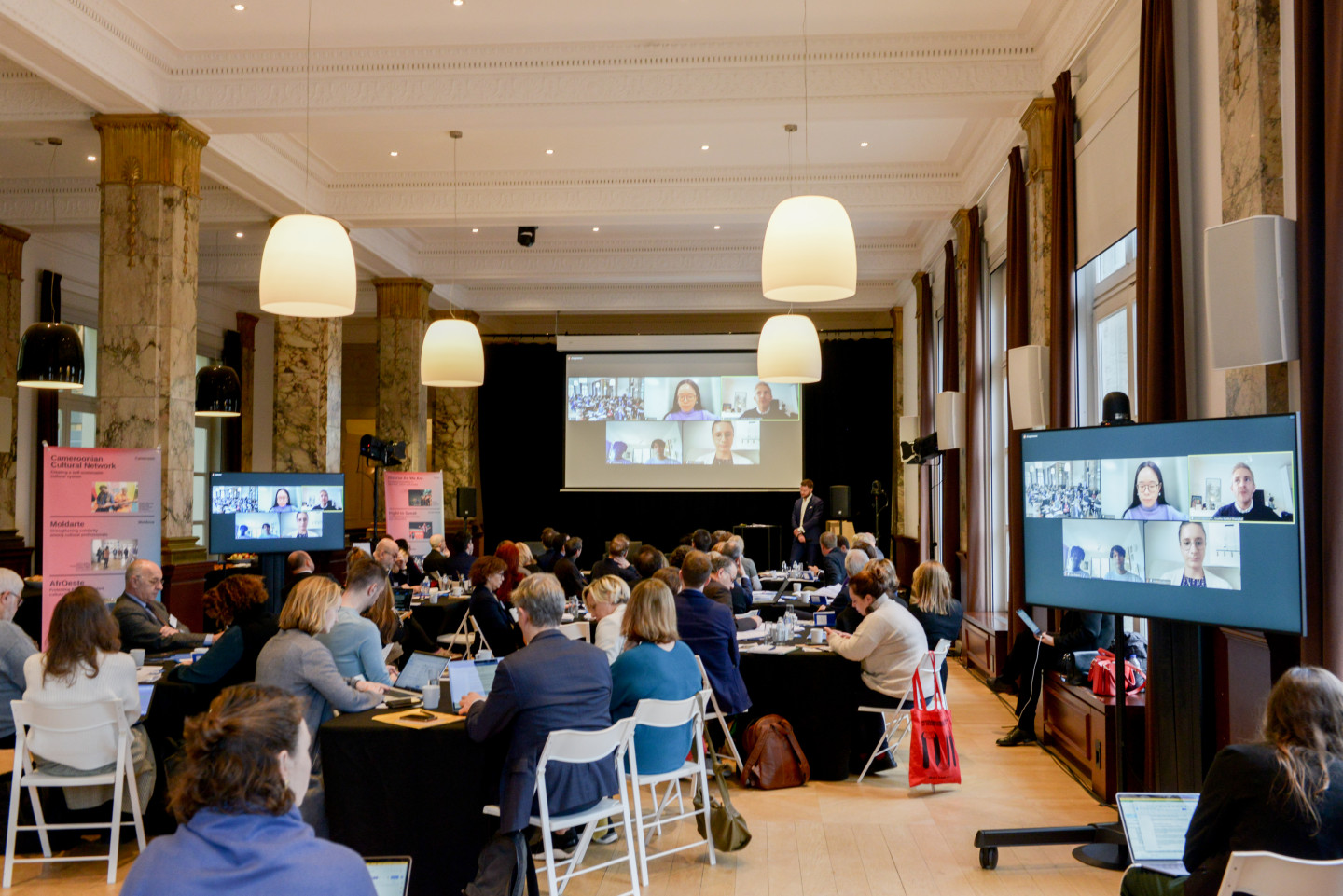
Photo: Pauline Caplet
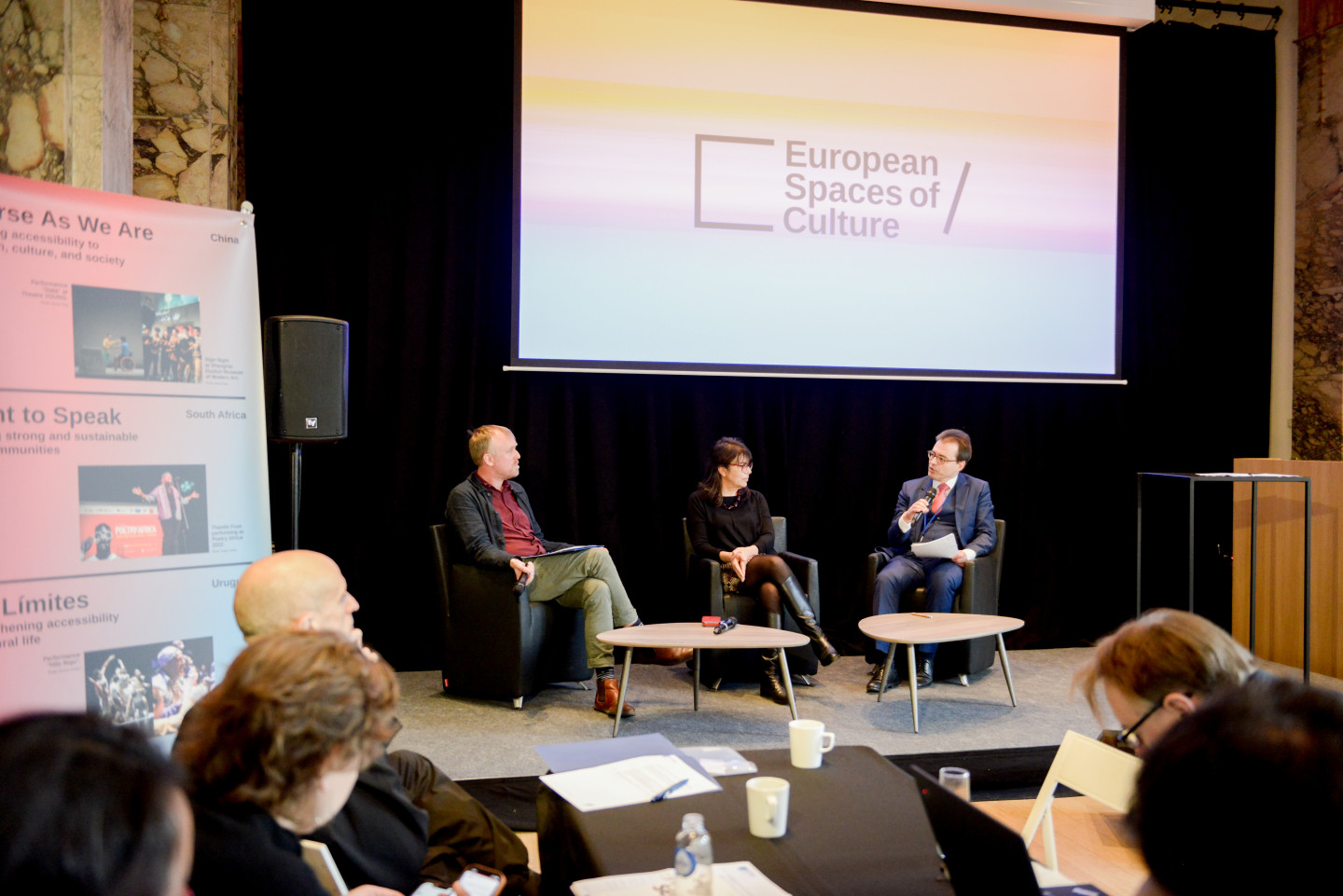
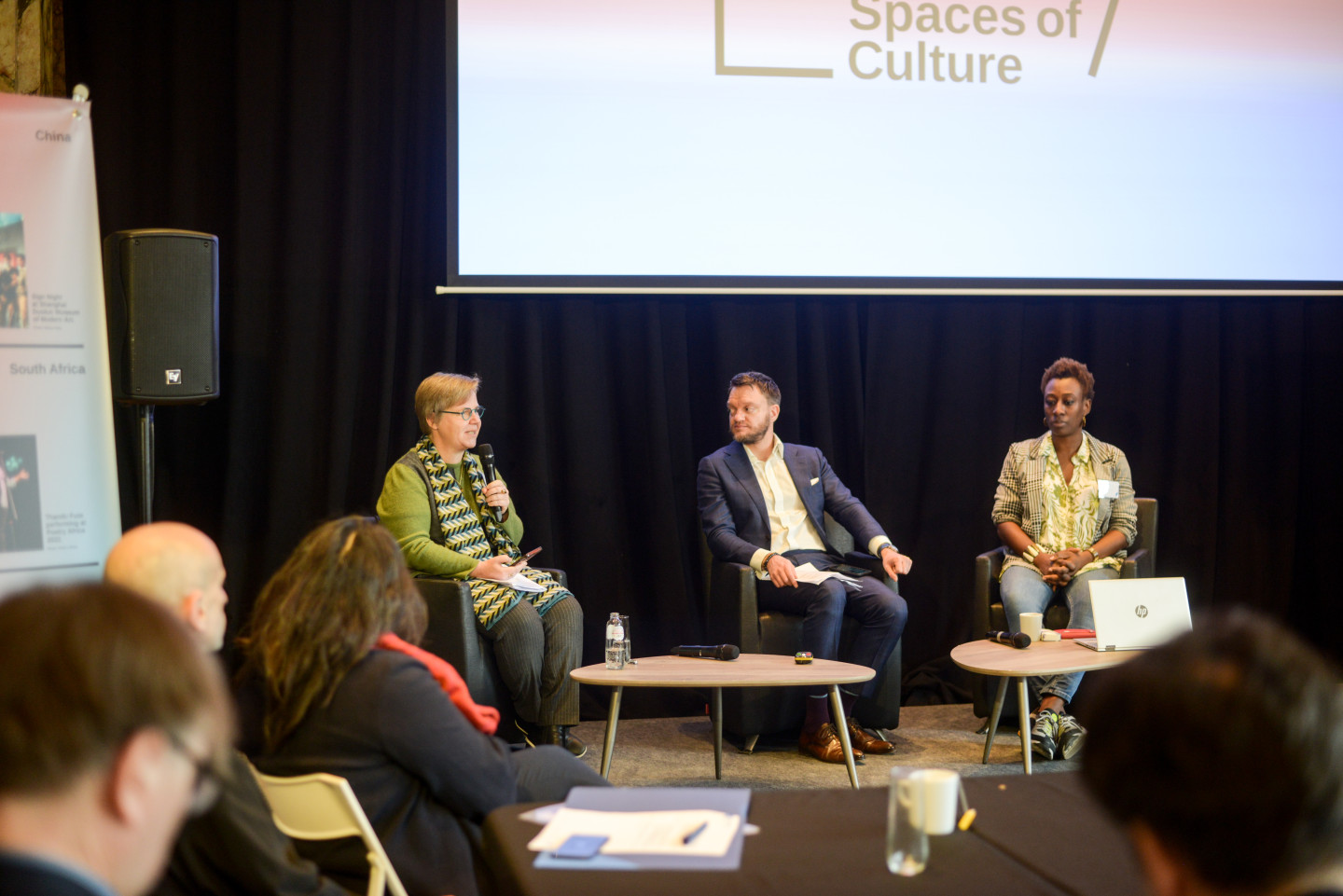
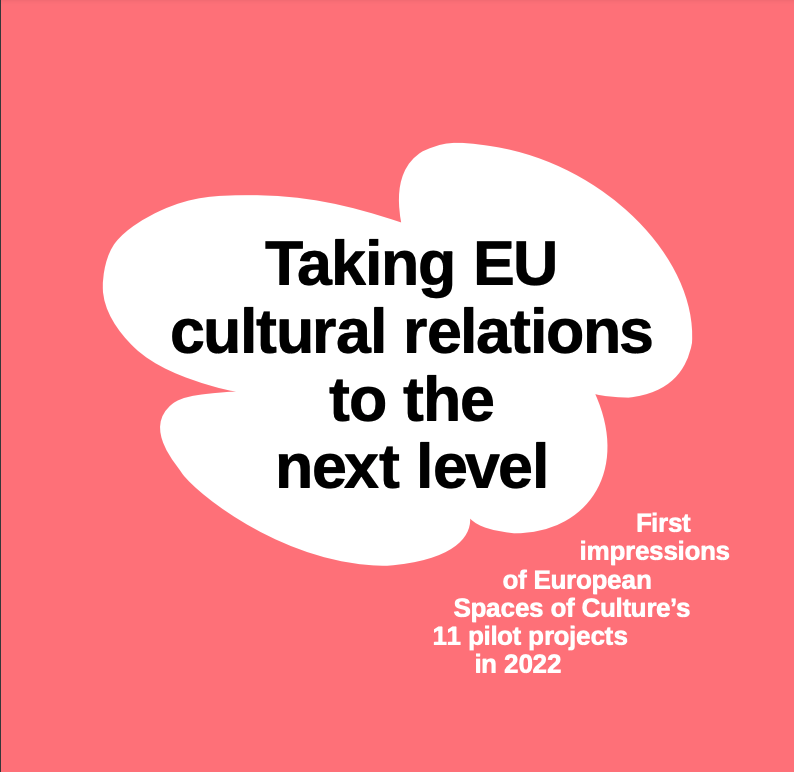
"A shift for Europe from 'Do as we do' to 'What can we do together'"
On 9 December EUNIC presented the achievements and learnings from the implementation of 11 pilot projects in 2022. EU Ambassadors, local partners and EUNIC colleagues from Brazil, China, India, and Tanzania joined in hybrid panels to reflect on their experiences on the ground.


Photo: Pauline Caplet



As the second phase of the Preparatory Action European Spaces of Culture came to an end in October 2022, EUNIC presented the findings and reflections on the pilot projects implemented in 2022 at the EUNIC General Assembly in Brussels to the EUNIC network and external partners. With contributions from project partners, this video was presented to give insights into how the 11 pilot projects were implemented throughout 2022 and what the future holds for European Spaces of Culture.
Impressions from the projects
Local partners have a key role in the projects and their voices need to be heard. The testimonies from local partners and EUNIC colleagues from China, India, and Tanzania reflected a core objective of European Spaces of Culture, which is to address pressing global issues through creativity and collaboration, such as sustainability, inclusivity and accessibility, and a strong and resilient cultural infrastructure. The projects reported a complementarity of the different partners involved (local partners, EUNIC members and EU Delegations) and that they were able to expand and deepen strategically their networks with both European and local civil society partners over the course of the projects.
As the European Spaces of Culture pilot projects should lay a sustainable foundation for future activities and projects, and go beyond one-off activities, the three projects outlined future outlooks and plans for continuation of the projects, taking on board learnings of the implementation period.
Oliver Hartmann (Goethe-Institut Shanghai) and Ling Mao (Theatre YOUNG), shared experiences from the Diverse As We Are project in Shanghai – the first ever inclusive festival in China to open up and include disabled communities in the arts. Both emphasised the inclusive and transparent approach the project team deployed in implementing the project. With the first edition of the festival aimed at raising awareness about artwork created by people with disabilities, participants and partners stated they want to continue working in inclusive ways and invite more artists with diverse background for future productions.
As the political situation in China often requires general approval by authorities, project partners have avoided to work together with official institutions. Therefore, for follow-up editions of the project, caution is required and local partners will need to have more agency and responsibility.
This is the first inclusive festival of this scale in China. This time was about raising awareness for artwork created by people with disabilities and the audience confirmed that this was very meaningful. Therefore it is important that we get to continue this festival.
Ling Mao, Head of programming for Theatre Young Shanghai
Pauline Laravoire from Y-East, partner of the Moving Kolkata – Kolkata Moving (MKKM) India, explained the importance of the project for the city of Kolkata. MKKM combined aspects of climate change, heritage, and communities – in a project where artists and communities are invited to share and co-create solutions for the future of Kolkata’s sustainable development.
The project has helped in finding a narrative change for Kolkata but also managed to build awareness and educational content for future generations. These resources were not only created but are actually spread, used, and read; already some existing partnerships are expanding. The platform created can be used in many parts of the world and has the potential to be upscaled to highlight good practice examples and stories.
Samwel Japhet (Project Management Team) and Jose Ramos (Embassy of Spain) joined from Tanzania to discuss the collaborative process that led to the UMOJA project. The project, for the first time, brought artists from Europe and East Africa together for a 5-week residency with additional workshops and showcases of works produced during the residency. An important starting point to the UMOJA collaborative process was the identification of the local challenges – such as a lack of cultural infrastructure and recognition of local artists – which was based on consultations with local partners.
All partners – Tanzanian and European – took an equal seat at the table and took decisions on all facets of the project collectively, be it the visual design, the curation, or the location of events. Because of this collective spirit towards a common goal, the project managed to move away from showcasing a collection of national cultures to actual co-creation.
Evolving EUNIC-EU cooperation through European Spaces of Culture
A follow-up conversation with colleagues from the European External Action Service (both Headquarters and two EU Ambassadors in Brazil and Tanzania) and the European Commission (DG Education & Culture) focused on evolving EUNIC-EU cooperation through European Spaces of Culture. Both ambassadors reflected on how the European Spaces of Culture projects in their host countries offered innovative ways to put crucial topics on the agenda and that the collaborative model of European Spaces of Culture has been the basis of their Team Europe approach when working together with local partners.
Manfredo Fanti, EU Ambassador to Tanzania, took pride in participating in the UMOJA project which brought something new to Tanzania and to relationships with local partners: "Keywords here are 'listening to the other'. He stated that that a change in approach is happening among the European partners, and that there is a strong willingness to create a meeting of cultures, co-creation and collaboration and support to local artists. There are numerous young artists in Tanzania today, but they face difficulties to expressing and finding opportunies. This is where the EU as Team Europe can and should play a role.
Ignacio Ybáñez, EU Ambassador to Brazil, stated that the Politics of Nature project has been extremely important and has strengthened the collective work of three clusters in Brasilia, Rio de Janeiro, and São Paulo. The project concentrates on one of the priorities of the EU through climate action and also provides the partners direct access to youth (which is also a target audience of the EU). Ambassador Ybáñez made a plea to EU services to work as one rather than separately. As culture is an exemplary tool to access other priority themes, such as sustainability and human rights, the topic should not be limited to DG EAC, but mainstreamed throughout all DGs. He also called for more budget to be allocated to such projects, as they concretise the theoretical approach discussed at, e.g., Senior Officials Meetings.
The project Politics of Nature has been extremely important, by concentrating on one of the priorities of the EU, climate action. The project gives direct access to youth, also a target audience of the EU. My plea to the EU services is to work as one, DGs need to work more together. PoN is an excellent example of what we can do together.
Ignacio Ybáñez, EU Ambassador to Brazil
Catherine Magnant (DG EAC) and Volker Erhard (EEAS) mirrored this call to convince as many colleagues as possible from different DGs of the added value of culture, including by rallying colleagues of cooperation sections at EU Delegations to break the silos in each delegation. Cultural relations it not just a common responsibility, but also a common opportunity. To translate the lessons learnt from European Spaces of Culture into financial programming, dialogue with DG INTPA and DG NEAR is key. Another important policy is the new Council Work Plan for Culture, with the part on external cultural relations amplified with a specific focus on governance of the topic within the European Commission.
One of the actions that will be tackled is an expert group that will be set up to reflect on how to bring forward the External relations. For the mid-term evaluation of the Neighbourhood, Development and International Cooperation Instrument (NDICI) in 2024, it is important that EU Delegations feedback to Brussels how this model of collaboration worked so far and how more resources can be allocated to culture in the EU's external action.
Jury feedback
The meeting was also joined by three of the six independent jury members for the selection of European Spaces of Culture projects, reflecting the European Spaces of Culture they see transpiring through the applications they evaluate. Yemisi Mokuolu applauded the paradigm shift she has noticed within the European Spaces of Culture from traditional cultural diplomacy to cultural relations: "I really love this shift for Europe from 'Do as we do' to 'What can we do together'."
The methodology of European Spaces of Culture enables the European partners to find out what is really needed vs. what is assumed by them and to gain the sense that money is not or should not be equated with power: "A local partner with 20 year’s experience is as much if not more valuable than a 100,000 euro budget". The critical point remains how to scale this way of working and how to create a legacy to make this known to an as wide group as possible.
Katelijn Verstraete highlighted that mutual learning was very clearly present for her, with few applications proposing traditional showcasing events. Innovation – especially in a local context – has been well reflected too. This demonstrates the locally grounded nature of these projects, where a sense of amplification, learning and added value and sustainability is embedded in a real sense of a common shared space: "Nobody owns the space, it’s a third space". However in general, often more focus (“sometimes small is beautiful”) is required and the sense of urgency occasionally lacks.
Urgency is what Kateryna Botanova put forward as an improvement point, as EUNIC often operates in countries where the speed of transformation is high. Having been involved in European Spaces of Culture from the start, she has noticed a slow but crucial transformation towards proposals that are actually co-created and not dominated by European partners but are based on horizontal exchange about what is needed by the local partners.
I really love this shift for Europe from 'Do as we do' to 'What can we do together'.
Yemisi Mokuolu, CEO of Hatch Africa and jury member of European Spaces of Culture
European Spaces of Culture Phase 2 Report
To summarise the findings of the main objectives, activities, and achievements of the eleven pilot projects implemented in 2022, EUNIC has published an interim report. As many of the projects only came to a close shortly before finalising the report, this overview does not yet offer the full and detailed picture. These short accounts however give insights into how the projects addressed global transversal topics through culture and creativity. Our thanks go out to all project partners for making this possible and showing the way forward!
